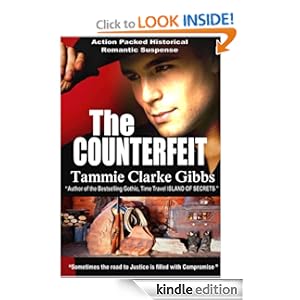So if y'all remember, I reviewed Deadline by James A. Anderson a while ago and I loved it! So after reading the book and posting a review I sent the author a couple of questions! Below you'll find my interview with James Anderson and hear about his writing process and personal experience as a journalist!
Me: Can you tell me a bit about yourself?
Him: I am 63 years old and a retired Canadian journalist with more than 35 years experience as a reporter and editor on several weekly and daily newspapers. I was born in Glasgow, Scotland and did my early education in England before we moved to Canada in 1957. I was the first person in my family to go to university and graduated in 1972 with an Honors degree in History (English as my minor). I have always been an avid reader of all types of books, with mysteries and thrillers as my favorite genre, historical fiction second.
I am married to my wife Sherry, a Registered Nurse, and we live in London, Ontario, Canada with two basenji dogs. We have two grown children and four grandchildren. In retirement, I enjoy spending time with my family, golfing in the summer and writing.
Me: What made you decide to go from being a journalist to writing and publishing a book?
Him: As I mentioned, I'm an avid reader and decided to try and write a thriller myself to keep me occupied and keep my mind sharp in retirement. I also felt I could write something that was better than some of the stuff I was reading. I write books that I would like to read -- fast-paced, lots of action, page turners, a quick read, and decided to use my background and experience as a journalist as a setting for my first novel. I took a novel writing course and they tell you to write about what you know.
Me: What was your process while writing Deadline? Did you write whenever the urge hit or did you plan out so many pages a day?
Him: Deadline took me about six months from start to finish. It's about 50,000 words -- 232 pages. I prefer to write in the morning, 9 a.m -- 12 p.m., about three hours every day and some days it goes very well and others not so much. I try to polish off 1,000-1,500 words a day. The real work begins in revising and rewriting and polishing the novel. I wrote five drafts of Deadline before I felt it was ready to publish. You have to develop a work ethic and try to write every day. If you just wait for the urge to strike, nothing will get done. I think it was Stephen King who once observed that writing is 90% perspiration, 10% inspiration. It can be difficult. Writing is not easy. Some days you just do not feel like it and not much gets done, but you must try to discipline yourself to get your ass in that seat and write. I find it helpful to set myself personal deadlines, comes from my journalism training.
Me: Which character in Deadline do you associate the most with?
Him: That would be Braden Young, the managing editor of the Daily Express. He has some of my character traits, but he drinks much more than I do. Actually many of the characters in Deadline are based on colleagues I've worked with and many of them recognized themselves in the book. Some of the news stories are actual cases fictionalized. There is lots of material in the real word that makes good fodder for fiction. Truth is sometimes stranger than fiction.
Me: In Deadline, Trevor gets to interview a very important person in Al Qaeda. Where did you get his answers to Trevor’s questions?
Him: Most of it I made up in my head. I tried to put myself in that person's mind and think like he would. I also drew upon my knowledge of Al Qaeda propaganda and the situation in Afghanistan and Pakistan from news sources. A former Canadian army person who served over there assisted me with information about the region and what it was like over there. He vetted my early manuscript and made some valuable suggestions for changes which I included in the final story. The rest I got from searching the Internet.
Me: What was the most exciting story or interview you ever covered as a journalist yourself?
Him: I've had many over 35 years, but a couple really stand out. In the 1970s as a young reporter, I got to cover my first murder trial. A wife shot her estranged husband in front of the family during Christmas Eve dinner after an argument over the younger woman he was sleeping with. He was a vice-president of a university and the family were pretty wealthy. Needless to say, the trial had some pretty juicy details that came out and generated a lot of media publicity. It was my first experience covering the justice system in a major trial and it was fascinating watching how both sides worked the case. She had a high priced lawyer who argued an insanity defense and in the end he won the case because she was found not guilty by reason of insanity by the jury and sent to a psychiatric institute for treatment.
The other was a chance to interview Canada's then Prime Minister Pierre Elliot Trudeau. A very interesting and charismatic man.
In the 1980s,I was visiting the White House Press Centre in Washington at the invitation of an old college buddy who then worked for ABC News. While there, President Ronald Reagan and his lunch guest British PM Margaret Thatcher dropped in and chatted with the reporters. That was quite thrilling to talk to them.
One thing I love about journalism is that there is always something new; it is rarely dull and boring.
Me: What are the 3 words you would chose to describe your book to get the reader’s attention?
Him: Action, fast-paced, suspense.
Me asking the question left by Sara Jo Easton, another author and commentor on my review of Deadline: What was the toughest thing you had to write and why?
Him: Actually writing has always come pretty easy to me. I started writing stories when I was 8 or 9. Wrote a novel while in high school but it never got published. It wasn't very good. Probably the toughest story I had to write as a journalist involved a young child of 6 dying of cancer and whose wish was to go to Disney World. The publicity generated an outpouring of community donations and she got her wish in a special VIP visit. She died two months later. But it also was one of my most satisfying and rewarding stories of them all.
Me: What do you want readers to know that I didn’t cover in my review?
Him: I don't know, your review was pretty comprehensive. The free promotion of my novel generated almost 10,000 downloads of the Kindle book in the U.S., Canada and UK. I'm a new and unknown author so hopefully many of these people will read it it and like it and tell their friends or write reviews to spread the word. The book now sells for $2.99 in ebook and is also available in paperback from Amazon or the publisher www.lulu.com
Me: When can we expect the sequel to Deadline?
Him: The sequel is tentatively titled The Scorpion and I'm about half-way through it. I hope to publish it in the spring. It picks up with many of the same characters from the Daily Express in new news adventures and terrorists are targeting Toronto and Ottawa in Operation Saladin. My hope is to make it more exciting than the first one.
Thanks for the interview, Alex and good luck to you and all your readers.
MAY ALL YOUR NEWS BE GOOD NEWS!
Thank you so much for the interview James! It was great hearing about your writing process and personal history as a journalist! :)
If y'all want to read Deadline (and I think it is well worth the $3!) then you can buy it here! I can't imagine a more exciting book but look forward to reading the sequel!












